第8章 III THE LUXURY OF READING IN BED(2)
Another famous man who made a practice of reading books as he walked the highways was Dr. Johnson, and it is recorded that he presented a curious spectacle indeed, for his shortsightedness compelled him to hold the volume close to his nose, and he shuffled along, rather than walked, stepping high over shadows and stumbling over sticks and stones.
But, perhaps, the most interesting story illustrative of the practice of carrying one's reading around with one is that which is told of Professor Porson, the Greek scholar. This human monument of learning happened to be travelling in the same coach with a coxcomb who sought to air his pretended learning by quotations from the ancients. At last old Porson asked:
``Pri'thee, sir, whence comes that quotation?''
``From Sophocles,''quoth the vain fellow.
``Be so kind as to find it for me?'' asked Porson, producing a copy of Sophocles from his pocket.
Then the coxcomb, not at all abashed, said that he meant not Sophocles, but Euripides. Whereupon Porson drew from another pocket a copy of Euripides and challenged the upstart to find the quotation in question. Full of confusion, the fellow thrust his head out of the window of the coach and cried to the driver:
``In heaven's name, put me down at once; for there is an old gentleman in here that hath the Bodleian Library in his pocket!''
Porson himself was a veritable slave to the habit of reading in bed. He would lie down with his books piled around him, then light his pipe and start in upon some favorite volume. A jug of liquor was invariably at hand, for Porson was a famous drinker.
It is related that on one occasion he fell into a boosy slumber, his pipe dropped out of his mouth and set fire to the bed-clothes. But for the arrival of succor the tipsy scholar would surely have been cremated.
Another very slovenly fellow was De Quincey, and he was devoted to reading in bed. But De Quincey was a very vandal when it came to the care and use of books. He never returned volumes he borrowed, and he never hesitated to mutilate a rare book in order to save himself the labor and trouble of writing out a quotation.
But perhaps the person who did most to bring reading in bed into evil repute was Mrs. Charles Elstob, ward and sister of the Canon of Canterbury (circa 1700). In his ``Dissertation on Letter-Founders,'' Rowe Mores describes this woman as the ``indefessa comes'' of her brother's studies, a female student in Oxford. She was, says Mores, a northern lady of an ancient family and a genteel fortune, ``but she pursued too much the drug called learning, and in that pursuit failed of being careful of any one thing necessary. In her latter years she was tutoress in the family of the Duke of Portland, where we visited her in her sleeping-room at Bulstrode, surrounded with books and dirtiness, the usual appendages of folk of learning!''
There is another word which Cicero uses --for I have still somewhat more to say of that passage from the oration ``pro Archia poeta''--the word ``rusticantur,'' which indicates that civilization twenty centuries ago made a practice of taking books out into the country for summer reading. ``These literary pursuits rusticate with us,'' says Cicero, and thus he presents to us a pen- picture of the Roman patrician stretched upon the cool grass under the trees, perusing the latest popular romance, while, forsooth, in yonder hammock his dignified spouse swings slowly to and fro, conning the pages and the colored plates of the current fashion journal. Surely in the telltale word ``rusticantur'' you and I and the rest of human nature find a worthy precedent and much encouragement for our practice of loading up with plenty of good reading before we start for the scene of our annual summering.
As for myself, I never go away from home that I do not take a trunkful of books with me, for experience has taught me that there is no companionship better than that of these friends, who, however much all things else may vary, always give the same response to my demand upon their solace and their cheer. My sister, Miss Susan, has often inveighed against this practice of mine, and it was only yesterday that she informed me that I was the most exasperating man in the world.
However, as Miss Susan's experience with men during the sixty-seven hot summers and sixty-eight hard winters of her life has been somewhat limited, I think I should bear her criticism without a murmur. Miss Susan is really one of the kindest creatures in all the world. It is her misfortune that she has had all her life an insane passion for collecting crockery, old pewter, old brass, old glass, old furniture and other trumpery of that character; a passion with which I have little sympathy. Ido not know that Miss Susan is prouder of her collection of all this folderol than she is of the fact that she is a spinster.
This latter peculiarity asserts itself upon every occasion possible. I recall an unpleasant scene in the omnibus last winter, when the obsequious conductor, taking advantage of my sister's white hair and furrowed cheeks, addressed that estimable lady as ``Madam.'' I'd have you know that my sister gave the fellow to understand very shortly and in very vigorous English (emphasized with her blue silk umbrella) that she was Miss Susan, and that she did not intend to be Madamed by anybody, under any condition.